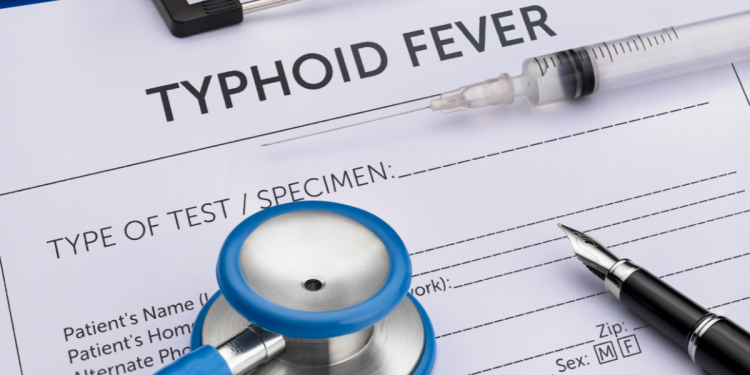Millions of bacteria live in and out of our bodies. Some are good for us, while others cause serious harm to our health. In some cases, they might be life-threatening. Salmonella Typhi is a type of bacteria that belongs to the latter. The bacteria are responsible for causing the deadly Typhoid fever, also known as Enteric fever. It affects the digestive tract, and the bacteria also enters the bloodstream.
The bacteria are usually spread in unhygienic conditions, such as drinking contaminated water or eating contaminated food. Although typhoid is not a significant disease in developed countries like the United States, it poses a major threat to developing and under-developed countries like South Asia, Africa, and South America. Moreover, it is highly contagious. Therefore, around 11-21 million people are affected by typhoid every year.
What can cause Typhoid Fever?
The bacteria mainly spread in unsanitized and contaminated surroundings. For example, in countries where access to clean food and water is difficult, typhoid spreads rapidly. Also, if a person is traveling to a country prone to this bacteria and ingests it unknowingly, they may be in big trouble. Therefore, it is always a good idea to get treated as soon as the first symptoms of typhoid fever are visible.
Early signs and symptoms of Typhoid fever
The incubation period of the bacteria is roughly around 10-14 days. Once the bacteria enter the body through the mouth, they multiply for several days in the intestinal tract and enter the bloodstream. Because of the high numbers of bacteria, a person may experience severe headaches, fever, stomach aches, and appetite loss. In addition, the infected person may either have constipation or diarrhea. As days pass by, the temperature of the body gradually increases. Other symptoms may also include:
- Weakness
- Muscle aches
- Dry cough
- Rashes (also called rose-colored spots), particularly on the neck and abdomen.
If prolonged for long, other severe symptoms may include:
- delirium
- bleeding from the rectum
If left untreated, there is a high chance that typhoid may lead to the death of the infected person.
How is the diagnosis of typhoid made?
Typhoid-causing bacteria pass through the stool of the infected person. Therefore, a doctor will first make a physical examination and may collect blood or stool samples. In rare cases, the doctor may also diagnose bone marrow. In this way, the doctor rules out any other disease with similar symptoms of typhoid fever.
The Treatment Plan
Doctors usually prescribe antibiotics to treat typhoid fever. Antibiotics like ceftriaxone, levofloxacin, and ciprofloxacin are a few of the antibiotics that can cure typhoid fever within a week or even less. For the antibiotics to work, the infected person should take them for the prescribed number of days without skipping any. Moreover, if doctors detect typhoid very early, the primary treatment is an oral rehydration solution.
Unfortunately, the bacteria are developing a resistance to the prescribed antibiotics. As a result, the treatment process is getting complicated. However, with proper consultation and treatment, it is possible to get rid of typhoid fever in no time.
While the treatment is going on, it is equally important to take care of personal hygiene. Washing hands regularly and keeping surroundings clean help in getting rid of typhoid faster.
The Prevention Plan
The most basic way to prevent typhoid fever is to avoid taking in contaminated food and water at all costs. In addition, washing hands properly with soap, before and after eating, help in reducing the risks of getting typhoid fever. Some healthy practices include:
- Drinking filtered water, and if possible, boiling it before drinking.
- Washing fruits and vegetables thoroughly.
- Drinking only pasteurized milk.
- Eating cooked food only.
- Carrying an alcohol-based sanitizer everywhere
- Avoid eating street-food
Vaccination is another effective way of preventing typhoid fever. In the United States, two types of vaccinations are available- an oral one and an injected one. However, vaccinations are not fully effective. In some cases, the vaccination may even cause side effects like a high fever. But, the symptoms do not last for long. Hence, it is essential to get vaccinated, especially if you are traveling to a country where typhoid fever is prevalent.
Stay safe, stay healthy!
Typhoid fever can turn out to be a deadly disease if you do not seek treatment on time. If you face any discomfort, seek the advice of a health professional immediately. The doctors can help you get back on your feet in no time. In this way, you restrict the spread of the disease any further. If you plan to travel abroad, it is best to ask your doctor what type of vaccination suits you the best. In the end, stay extremely alert and take care of yourself so that you, as well as your loved ones, stay safe and sound!











Discussion about this post